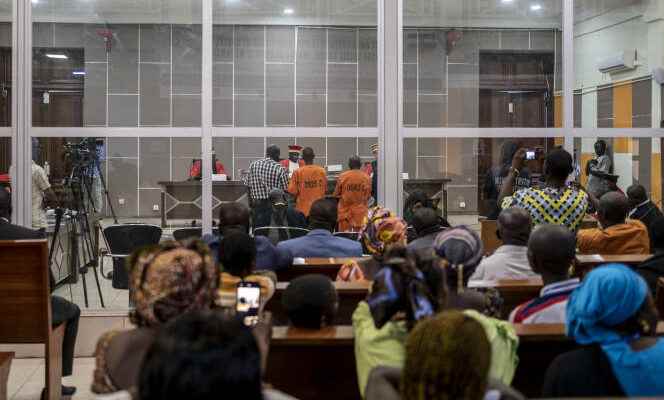The mandate of the Special Criminal Court (CPS) in the Central African Republic, created eight years ago to try defendants of crimes against humanity in this country in civil war, was renewed for five years by the National Assembly, Wednesday 28 December, noted an AFP journalist. The bill extending the mandate of the CPS was presented by the Minister of Justice before the deputies and was adopted during a vote by acclamation following a debate in the hemicycle.
This decision “marks the will of the Central African people […] to continue forever to lead the fight against impunity”, declared the Minister of Justice, Arnaud Djoubaye Abazene. He also issued a warning “to those who are plotting against the institutions of the Republic, perpetrating violence and atrocities on peaceful citizens: they must know that justice will catch up with them. »
The SCC was created in 2015 by the Central African government under UN sponsorship, but its first investigations were only launched in 2018. This hybrid tribunal, made up of local and international magistrates, including judges and prosecutors from France , Togo and the Democratic Republic of Congo (DRC), judges war crimes and crimes against humanity committed since 2003 in the country.
The SCC’s first trial opened in April, before a first verdict was handed down in November. The court sentenced three members of a Central African armed group to terms ranging from 20 years to life imprisonment for “crimes against humanity”. The SPC has an annual budget of 12 million euros, mainly provided by the UN, the European Union and the United States.
The Central African Republic, the second least developed country in the world according to the UN, has been the scene since 2013 of a very deadly civil war in its first years but which has decreased in intensity since 2018.
